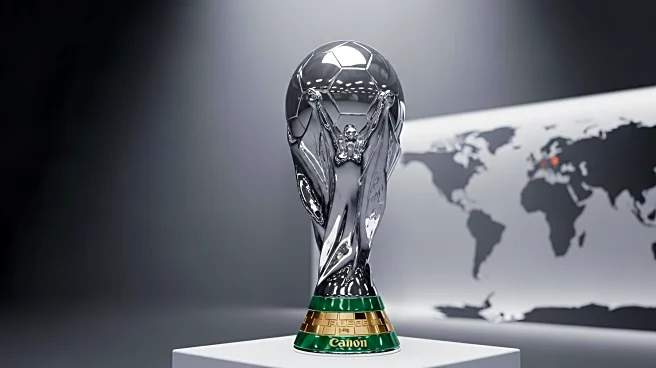What's Happening?
Victor Montagliani, FIFA Vice-President and President of Concacaf, has stated that any decision to relocate World Cup matches for the 2026 tournament must be made by FIFA, not President Trump. This clarification follows President Trump's comments about potentially moving matches from cities he perceives as dangerous, specifically mentioning San Francisco and Seattle. Montagliani emphasized that FIFA holds jurisdiction over the tournament decisions, asserting that football transcends political regimes and slogans. He also addressed the ongoing debate regarding Israel's participation in international football, noting that it is UEFA's responsibility to make decisions concerning its members.
Why It's Important?
The statement from Montagliani underscores the autonomy of FIFA in managing its tournaments, highlighting the separation between sports governance and political influence. This is significant as it reaffirms FIFA's role in maintaining the integrity and global nature of football, potentially impacting how future tournaments are organized amidst political pressures. The mention of Israel's involvement in international football also touches on broader geopolitical issues, reflecting the complex interplay between sports and international relations. Stakeholders in the sports industry, including cities hosting matches, may be affected by these clarifications, as they ensure that decisions are made based on sporting criteria rather than political considerations.
What's Next?
FIFA will continue to oversee the planning and execution of the 2026 World Cup, ensuring that match locations are determined based on logistical and sporting considerations. As the tournament approaches, FIFA may face further scrutiny and pressure from various political entities, requiring ongoing diplomatic engagement. Additionally, UEFA's decision regarding Israel's participation will be closely watched, as it could set precedents for how geopolitical issues are handled within international sports organizations. Cities like San Francisco and Seattle may need to address safety concerns to reassure FIFA and maintain their status as host locations.
Beyond the Headlines
The situation highlights the broader ethical and cultural dimensions of sports governance, where organizations like FIFA must navigate complex political landscapes while preserving the spirit of the game. The emphasis on football's ability to transcend political regimes suggests a commitment to using sports as a unifying force, promoting peace and cooperation across borders. This approach may influence how other international sports bodies handle similar challenges, potentially leading to a more standardized protocol for addressing geopolitical issues in sports.









